When it comes to choosing door hardware for your facility, understanding the roles of various components is crucial to ensuring safety, security, and functionality. Among these components, door coordinators and door closers are often confused, but they serve very distinct purposes. In this comprehensive blog, we’ll explore the differences between door coordinators and door closers, their applications, and how to choose the right one for your project.
Introduction to Door Coordinators and Door Closers
Door Closers are mechanical devices installed on doors to control the speed and force with which the door closes. They are designed to prevent the door from slamming, ensuring a smooth, controlled closing action. Door closers are widely used in commercial and residential settings to enhance security, maintain climate control, and prevent damage to the door and frame.
Door Coordinators, on the other hand, are used specifically for double-door systems. Their primary function is to ensure that both doors close in a specific sequence, which is essential for the proper latching and securing of the doors. This is particularly important in fire-rated and security-sensitive applications, where the integrity of the door system must be maintained.
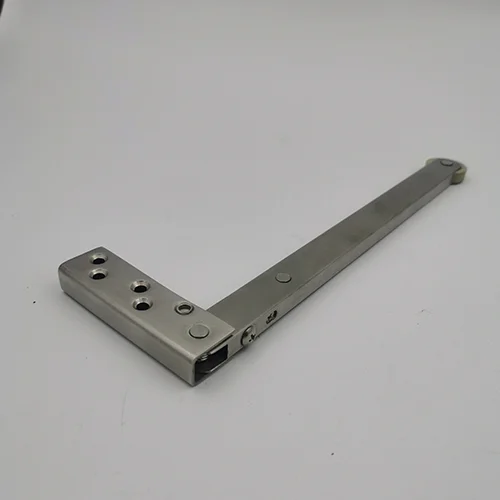
Now, let’s dive into a detailed comparison of door coordinators and door closers to help you understand which option is best suited for your needs.
1.Functionality Differences: Door Coordinator vs Door Closer
• Door Closers: These devices control the door’s movement, regulating the speed and force of closure. This prevents the door from slamming, reduces noise, and prolongs the life of the door and frame. Door closers are available in various types, including surface-mounted, concealed, and floor-mounted options, catering to different aesthetic and functional needs.
• Door Coordinators: The primary function of door coordinators is to control the sequence in which double doors close. In a typical double-door setup, one door is active (often the door used for regular entry and exit), while the other is inactive (usually bolted shut or held in place with a latch). The coordinator ensures that the inactive door closes first, allowing the active door to latch securely. This sequence is crucial in fire-rated door systems to maintain the barrier against fire and smoke.
Which to Choose?
If your priority is smooth and controlled door operation in single-door applications, a door closer is the ideal choice. However, for double-door systems, especially in fire-rated and high-security areas, door coordinators are indispensable for ensuring the correct closing sequence and maintaining compliance with safety standards.
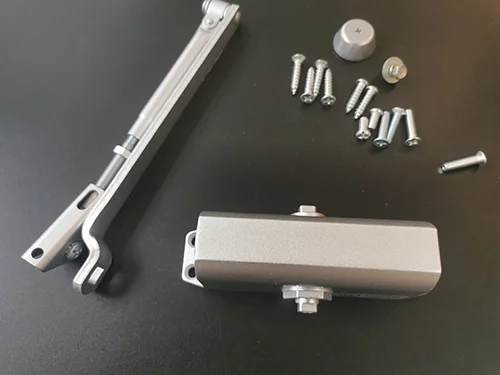
2.Application Context: Single vs. Double Doors
• Single Doors: Door closers are most commonly used in single-door settings, such as offices, homes, and commercial buildings. They are effective in managing the door’s operation, preventing slamming, and ensuring the door is securely closed, which is important for both security and energy efficiency.
• Double Doors: Door coordinators come into play in double-door systems, which are often found in hospitals, schools, and industrial facilities. In these environments, the correct closing sequence of both doors is critical to the security and functionality of the space. For example, in fire-rated doors, if the doors do not close properly, the integrity of the fire barrier is compromised.
Which to Choose?
Use door closers for single-door applications where controlled closure is needed. For double-door systems, especially where compliance with fire safety regulations is required, door coordinators are the better option as they ensure proper door operation and security.
3.Security and Fire Safety
• Fire Safety Regulations: In fire-rated door systems, both door closers and door coordinators play a vital role. Door closers ensure that the door closes completely and automatically, preventing the spread of fire and smoke. Door coordinators are essential in double-door setups, ensuring that both doors close in the correct order to maintain the fire barrier’s integrity.
• Enhanced Security: While door closers contribute to security by ensuring that doors are not left open accidentally, door coordinators enhance security in double-door systems by making sure that the inactive door closes and latches before the active door. This prevents unauthorized entry and ensures the doors are securely locked when closed.
Which to Choose?
For fire safety, door coordinators are crucial in double-door systems, as they ensure compliance with fire safety standards. In single-door applications, door closers provide the necessary control and security.
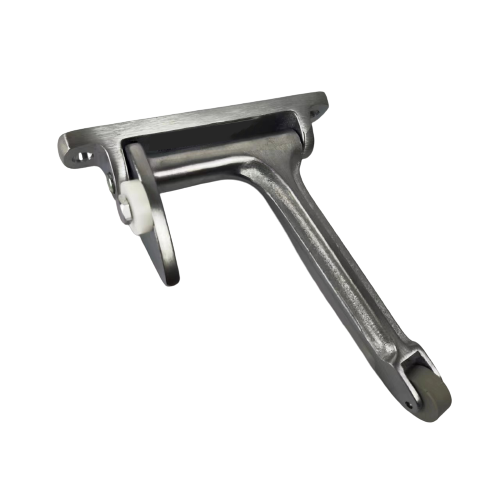
4.Ease of Installation and Maintenance
• Door Closers: Generally, door closers are easier to install and maintain compared to door coordinators. They are mounted on the door or frame and require minimal adjustments once installed. Maintenance typically involves checking the oil levels and adjusting the closing speed and latching force to suit the environment.
• Door Coordinators: Installing a door coordinator requires a precise alignment of both doors to ensure proper operation. This can be more challenging, especially in older buildings where the door frames may not be perfectly aligned. Regular maintenance is necessary to ensure the coordinator operates smoothly and the doors close in the correct sequence.
Which to Choose?
If ease of installation and low maintenance are priorities, door closers are the better choice. However, if your project involves double doors that require coordinated closing, the additional installation and maintenance efforts for door coordinators are worth the investment.
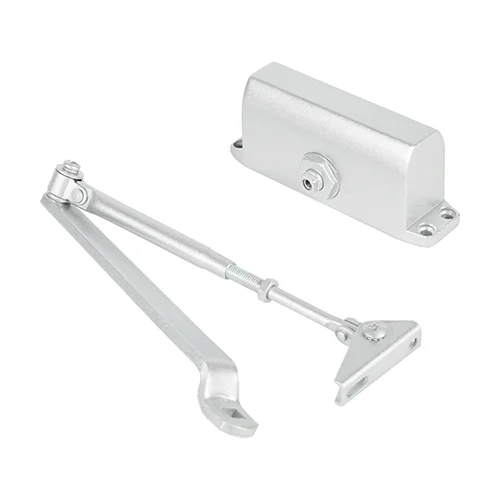
5.Cost Considerations: Budget vs. Compliance
• Cost of Door Closers: Door closers are generally more affordable and are available in a wide range of options to suit different budgets.
• Cost of Door Coordinators: Due to their specialized function and the need for precise installation, door coordinators are typically more expensive.
Which to Choose?
If budget is a primary concern, and you are dealing with single-door applications, door closers are a cost-effective solution. For double-door systems, especially in compliance-sensitive environments, the higher cost of door coordinators is justified by the enhanced safety and security benefits.
6.Aesthetic and Design Choices
• Aesthetic Appeal of Door Closers: Door closers are available in various finishes and designs, including surface-mounted and concealed options. This allows them to blend seamlessly with the door and surrounding architecture. Concealed door closers, in particular, are ideal for projects where maintaining the visual integrity of the space is important.
• Design Challenges with Door Coordinators: While functional, door coordinators can be more challenging to integrate aesthetically into a design, especially in settings where the mechanical components are visible. Concealed door coordinators are available, but they require complex installation and are generally more expensive.
Which to Choose?
For projects with a strong focus on aesthetics, door closers offer more design flexibility. However, for double-door systems, functionality and compliance take precedence over design, making door coordinators the necessary choice despite potential aesthetic drawbacks.

7.User Experience: Convenience vs. Safety
• Convenience of Door Closers: Door closers provide a convenient solution for controlling door operation, especially in high-traffic areas. They eliminate the need to manually close the door, making them ideal for offices, commercial spaces, and public buildings.
• Safety Assurance of Door Coordinators: In double-door systems, the correct operation of door coordinators is crucial for safety. They ensure that both doors close correctly, providing a secure and compliant closure. This is especially important in emergency situations, where the doors must close properly to contain fire or prevent unauthorized access.
Which to Choose?
For convenience in single-door applications, door closers are the go-to solution. For safety and compliance in double-door systems, door coordinators are essential.
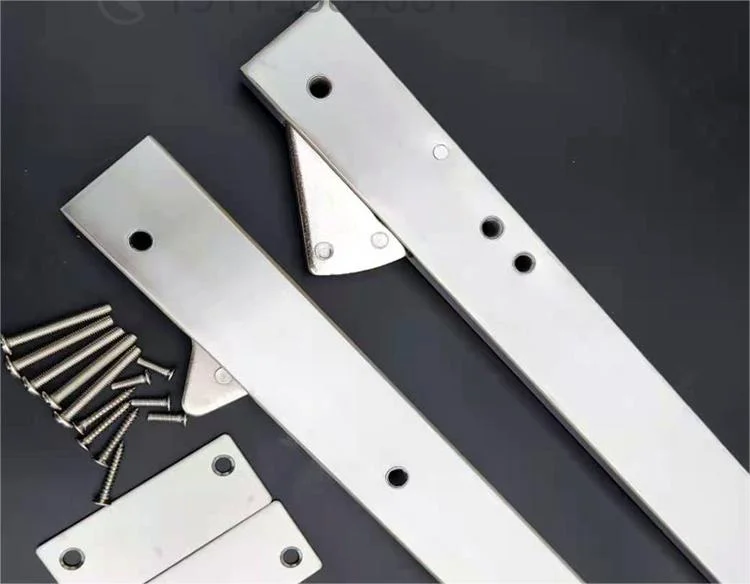
Conclusion: Choosing the Right Solution for Your Needs
When it comes to door hardware, choosing between door closers and door coordinators depends on the specific needs of your project. For wholesalers and importers, it’s not a matter of choosing between door closers and door coordinators but rather ensuring you have both in your inventory to meet diverse market needs. Door closers are essential for single-door applications, providing smooth and controlled door operation, while door coordinators are crucial for double-door systems, ensuring compliance and safety.
By offering a complete range of door hardware solutions, you can cater to various project requirements, from residential to commercial, and position yourself as a one-stop supplier for your customers.
Partner with Estar Hardware for Comprehensive Door Solutions
At Estar Hardware, we provide high-quality door closers and door coordinators to meet your inventory needs. Our products are designed for durability, compliance, and ease of installation, making them ideal for a wide range of applications. Contact us today to learn more about our wholesale options and how we can support your business in delivering reliable door hardware solutions to your customers.